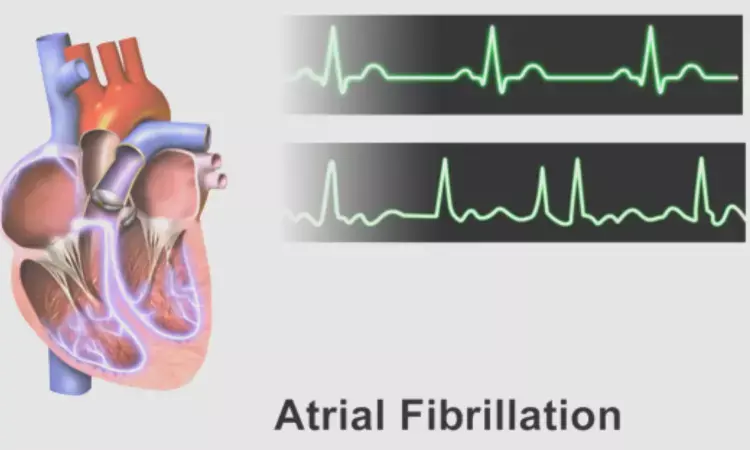- Home
- Medical news & Guidelines
- Anesthesiology
- Cardiology and CTVS
- Critical Care
- Dentistry
- Dermatology
- Diabetes and Endocrinology
- ENT
- Gastroenterology
- Medicine
- Nephrology
- Neurology
- Obstretics-Gynaecology
- Oncology
- Ophthalmology
- Orthopaedics
- Pediatrics-Neonatology
- Psychiatry
- Pulmonology
- Radiology
- Surgery
- Urology
- Laboratory Medicine
- Diet
- Nursing
- Paramedical
- Physiotherapy
- Health news
- Fact Check
- Bone Health Fact Check
- Brain Health Fact Check
- Cancer Related Fact Check
- Child Care Fact Check
- Dental and oral health fact check
- Diabetes and metabolic health fact check
- Diet and Nutrition Fact Check
- Eye and ENT Care Fact Check
- Fitness fact check
- Gut health fact check
- Heart health fact check
- Kidney health fact check
- Medical education fact check
- Men's health fact check
- Respiratory fact check
- Skin and hair care fact check
- Vaccine and Immunization fact check
- Women's health fact check
- AYUSH
- State News
- Andaman and Nicobar Islands
- Andhra Pradesh
- Arunachal Pradesh
- Assam
- Bihar
- Chandigarh
- Chattisgarh
- Dadra and Nagar Haveli
- Daman and Diu
- Delhi
- Goa
- Gujarat
- Haryana
- Himachal Pradesh
- Jammu & Kashmir
- Jharkhand
- Karnataka
- Kerala
- Ladakh
- Lakshadweep
- Madhya Pradesh
- Maharashtra
- Manipur
- Meghalaya
- Mizoram
- Nagaland
- Odisha
- Puducherry
- Punjab
- Rajasthan
- Sikkim
- Tamil Nadu
- Telangana
- Tripura
- Uttar Pradesh
- Uttrakhand
- West Bengal
- Medical Education
- Industry
Sleep apnea tied to increased risk of atrial fibrillation: JAHA

USA: A new study of over 42,000 patients revealed that sleep-related hypoxia - or low oxygen levels during sleep - is associated with a higher risk of developing atrial fibrillation, a common heart rhythm disorder, over time.
The study from Cleveland Clinic, published in JAHA, found that this risk persisted even after accounting for lung function, suggesting sleep-related hypoxia independently increases atrial fibrillation risk separate from any underlying lung disease.
Atrial fibrillation causes an irregular and often abnormally fast heart rate, which can lead to poor blood flow and complications like stroke. An estimated 2.7-6.1 million people in the U.S. are living with AFib.
The study showed that 5% of patients were diagnosed with AFib within 5 years of their sleep study despite the cohort being fairly young (mean of 51 years old). It also found that for every 10 percentage point decrease in mean oxygen saturation, risk of AFib increased by 30%.
Regular screening for and treating sleep apnea may help reduce the likelihood of developing atrial fibrillation, especially in those already at high risk, according to the researchers.
The researchers plan future studies to better understand the mechanisms linking sleep-disordered breathing, which includes sleep apnea and sleep-related hypoxia, to AFib development. They also aim to examine whether current treatments for sleep apnea, such as CPAP, can help lower AFib risk. Their findings can inform future clinical trials of sleep-disordered breathing treatments, such as supplemental oxygen at night.
Reference:
Catherine M. Heinzinger, Nicolas R. Thompson, Alex Milinovich, Matheus Lima Diniz Araujo, Cinthya Pena Orbea, Nancy Foldvary‐Schaefer, Philippe Haouzi, Michael Faulx, David R. Van Wagoner, Mina K. Chung and Reena Mehra, Sleep‐Disordered Breathing, Hypoxia, and Pulmonary Physiologic Influences in Atrial Fibrillation, https://doi.org/10.1161/JAHA.123.031462.
Dr Kamal Kant Kohli-MBBS, DTCD- a chest specialist with more than 30 years of practice and a flair for writing clinical articles, Dr Kamal Kant Kohli joined Medical Dialogues as a Chief Editor of Medical News. Besides writing articles, as an editor, he proofreads and verifies all the medical content published on Medical Dialogues including those coming from journals, studies,medical conferences,guidelines etc. Email: drkohli@medicaldialogues.in. Contact no. 011-43720751


